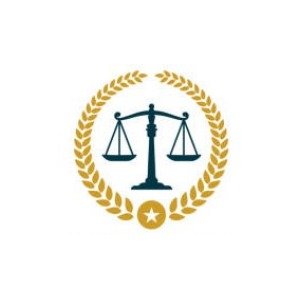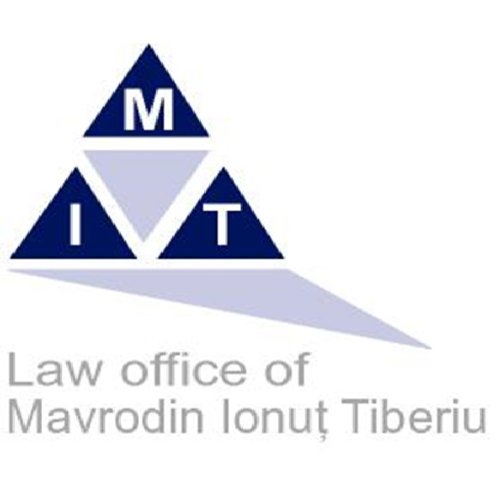Best Financial Services Regulation Lawyers in Constanța
Share your needs with us, get contacted by law firms.
Free. Takes 2 min.
List of the best lawyers in Constanța, Romania
About Financial Services Regulation Law in Constanța, Romania
Financial Services Regulation in Constanța, Romania, is governed by a combination of national and European Union laws. These regulations are designed to oversee banking, insurance, securities, and other financial services to ensure stability and protection for consumers. Constanța, being a key economic hub in Romania, has a variety of financial institutions that must comply with stringent standards set forth by Romanian authorities and EU directives. The regulatory framework not only ensures market integrity but also fosters competition and innovation in the financial sector.
Why You May Need a Lawyer
Seeking legal advice in Financial Services Regulation can be crucial in several scenarios:
- Compliance Issues: Financial institutions must adhere to complex regulations to avoid penalties.
- Dispute Resolution: There might be conflicts with regulatory bodies or between financial institutions and consumers.
- Licensing and Authorization: Setting up or expanding a financial institution may require specific approvals.
- Investigations: Legal assistance is often necessary if an organization is under investigation by financial authorities.
- Transactional Advice: Large financial transactions may need regulatory checks and legal oversight.
Local Laws Overview
Constanța, being part of Romania, follows national regulations that are heavily influenced by EU laws. Key aspects include:
- The Financial Supervisory Authority (ASF): It oversees the regulation of insurance, securities, and private pensions.
- Romanian National Bank (BNR): The central bank plays a crucial role in supervising commercial banks and ensuring monetary stability.
- Consumer Protection: Laws aim to protect consumers against unfair practices in financial services.
- Anti-Money Laundering (AML) and Counter-Terrorism Financing (CTF): Institutions must comply with strict reporting requirements to prevent illegal activities.
Frequently Asked Questions
What are the primary regulatory bodies for financial services in Constanța?
The main regulatory bodies are the Financial Supervisory Authority (ASF) and the National Bank of Romania (BNR). They ensure compliance and oversee the financial sector.
How do EU regulations impact Romanian financial institutions?
EU regulations directly affect Romanian laws, providing a framework for various aspects like consumer protection, market openness, and financial stability.
What should I do if I suspect a financial service provider of misconduct?
Contact a legal professional to understand your rights and possibly file a complaint with the relevant regulatory body, such as ASF or ANPC (National Authority for Consumer Protection).
Are there special licenses required for fintech companies?
Yes, fintech companies may need specific licenses depending on their services, such as payment processing or digital currencies, which require adherence to relevant regulations.
How can a lawyer assist with compliance audits?
Lawyers can provide advice on regulatory requirements, assess your current compliance status, and suggest necessary adjustments or improvements.
What is the process for setting up a new financial institution?
The process involves obtaining licenses or authorizations from the National Bank of Romania, among other regulatory requirements.
Can individuals get assistance for personal disputes with banks?
Yes, individuals can seek legal assistance for disputes related to loan agreements, foreclosure, or unfair practices.
How are cryptocurrency activities regulated in Romania?
Cryptocurrency activities are largely unregulated but subject to AML and CTF requirements. Legal advice is recommended to navigate this evolving landscape.
What role do local laws play in international trade finance?
Local laws, aligned with international standards, govern trade finance activities, including letters of credit and guarantees, impacting global business operations.
How often do financial regulations change in Romania?
Regulations may change frequently to align with EU directives and respond to market developments, making it essential for businesses to stay informed.
Additional Resources
For further assistance, consider reaching out to the following resources:
- The Financial Supervisory Authority (ASF) - provides guidance and information on financial regulations.
- The National Bank of Romania (BNR) - offers resources on banking regulations and policy updates.
- The National Authority for Consumer Protection (ANPC) - aids with consumer rights and financial services issues.
Next Steps
If you require legal assistance in Financial Services Regulation, consider the following steps:
- Identify Your Needs: Understand the specific legal challenges or questions you have.
- Consult with a Specialist Lawyer: Seek out legal professionals specializing in financial services regulation in Constanța.
- Prepare All Necessary Documentation: Gather all relevant documents and information to assist your lawyer in understanding your situation.
- Follow Up: After obtaining advice, ensure proper follow-up actions are taken to comply with legal and regulatory requirements.
Lawzana helps you find the best lawyers and law firms in Constanța through a curated and pre-screened list of qualified legal professionals. Our platform offers rankings and detailed profiles of attorneys and law firms, allowing you to compare based on practice areas, including Financial Services Regulation, experience, and client feedback.
Each profile includes a description of the firm's areas of practice, client reviews, team members and partners, year of establishment, spoken languages, office locations, contact information, social media presence, and any published articles or resources. Most firms on our platform speak English and are experienced in both local and international legal matters.
Get a quote from top-rated law firms in Constanța, Romania — quickly, securely, and without unnecessary hassle.
Disclaimer:
The information provided on this page is for general informational purposes only and does not constitute legal advice. While we strive to ensure the accuracy and relevance of the content, legal information may change over time, and interpretations of the law can vary. You should always consult with a qualified legal professional for advice specific to your situation.
We disclaim all liability for actions taken or not taken based on the content of this page. If you believe any information is incorrect or outdated, please contact us, and we will review and update it where appropriate.














